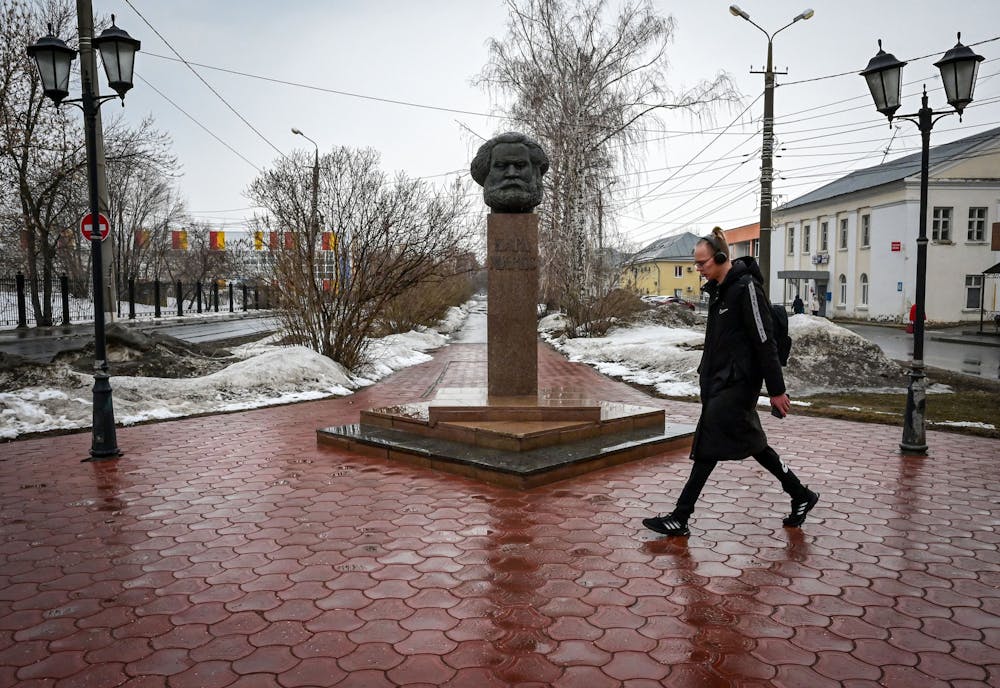Journalists today are not human beings.
The humanity is trained out of us. In order to be good “watchdogs,” we have to renounce our personhood. Any opinions you have must be scrupulously labeled and strictly separated from “news.”
A member of the “free” press must surrender their “free” speech, off the clock and on. Case in point: a journalist for the Dallas Morning News was fired in February after she referred to the mayor of Dallas as “bruh” in a tweet criticizing him. This behavior is, apparently, too unprofessional, too disrespectful for a journalist.
And then there is the fetishization of neutrality, of objectivity. One of many in-house reactionaries writing opinions at The New York Times, Bret Stephens, penned a piece a couple months ago arguing that objectivity in journalism was necessary if public trust in the media is to be regained, and he disparaged journalists who challenge the idea that both sides of an issue always deserve a fair hearing.
[Related: OPINION: The western press should stop lying about North Korea]
This is essentially what we’re taught in many classes at the Media School. But journalists weren’t always robots, somehow standing outside of society, above it all, seeking the “truth” and reporting it. Blurring the lines between social activism and journalism, a practice Stephens criticizes, has a long history.
Karl Marx is a good example. Marx – though you may know him for other things – was a journalist.
Writing for various newspapers, including the New York Daily Tribune, one of the highest- circulating papers in the world during the 19th century, was one of the main sources of income for Marx during his life. He wrote on a variety of subjects – I’d personally recommend his writings on the American Civil War.
Marx’s journalistic writing better resembles opinionated political commentary than what is normally considered “journalism” today. But it was timely and always reflected a deep knowledge of the political affairs of his time.
But his views on the press itself, and the role it should play in society, is of equal interest.
Marx said it was the “duty of the press to undermine the whole basis of the existing order.” He was a fierce defender of the freedom of the press and viewed it as a means for fanning the flames of social revolution.
This “duty of the press” is reminiscent of his call to philosophers for a “ruthless criticism of all that exists, ruthless both in the sense of not being afraid of the results it arrives at and in the sense of being just as little afraid of conflict with the powers that be.”
When I read the morning newsletter of The New York Times, I don’t get the sense that they’re striving for a ruthless criticism that will undermine the whole basis of the existing order.
The muckrakers of the late 19th and early 20th century seemed to share Marx’s ideas about the revolutionary potential of journalism. Black journalists like Ida B. Wells-Barnett were not “neutral” in their reporting. They bravely challenged white supremacy in the United States at great personal cost. Wells-Barnett and others were both activists and journalists.
It is the same with the great socialist journalists, like Upton Sinclair and John Reed. Sinclair’s great 1905 novel “The Jungle” was the result of investigative journalism he did for the socialist magazine, Appeal to Reason, into the conditions of workers in the stockyards of Chicago. His work was the impetus for a series of government reforms which improved American food-safety laws.
[Related: OPINION: There will never be freedom under capitalism]
A little over a decade later, the American journalist John Reed found himself in Petrograd, Russia during the Bolshevik Revolution. The revolution excited him, and he admitted in his account of the events that he supported the revolutionaries. For a journalist to admit something like that today seems unimaginable. If we quote the revolutionary in a story, we must also quote the counter revolutionary.
The journalism of all of these writers is still celebrated to this day, but their stylistic descendants seem practically nonexistent. Nikole Hannah-Jones, famous for the “1619 Project” – an ongoing initiative from The New York Times Magazine which aims to place slavery at the center of the U.S. national narrative – could be a contender. I had the privilege of hearing her speak before my class when she came to IU last semester, and she openly admitted that the 1619 Project was biased and that objectivity was impossible.
I don’t think the 1619 Project is perfect, but I admire what it sets out to do, which is seemingly to construct a “ruthless criticism” of American history and society. We desperately need more journalism like it.
Marx famously said that the philosophers had only interpreted the world in various ways, but the point was to change it. Journalists should go further than simply seeking the truth and reporting it, simply interpreting the world as if they don’t also have to live in it. We should be trying to change it.
Jared Quigg (he/him) is a junior studying journalism and political science.






